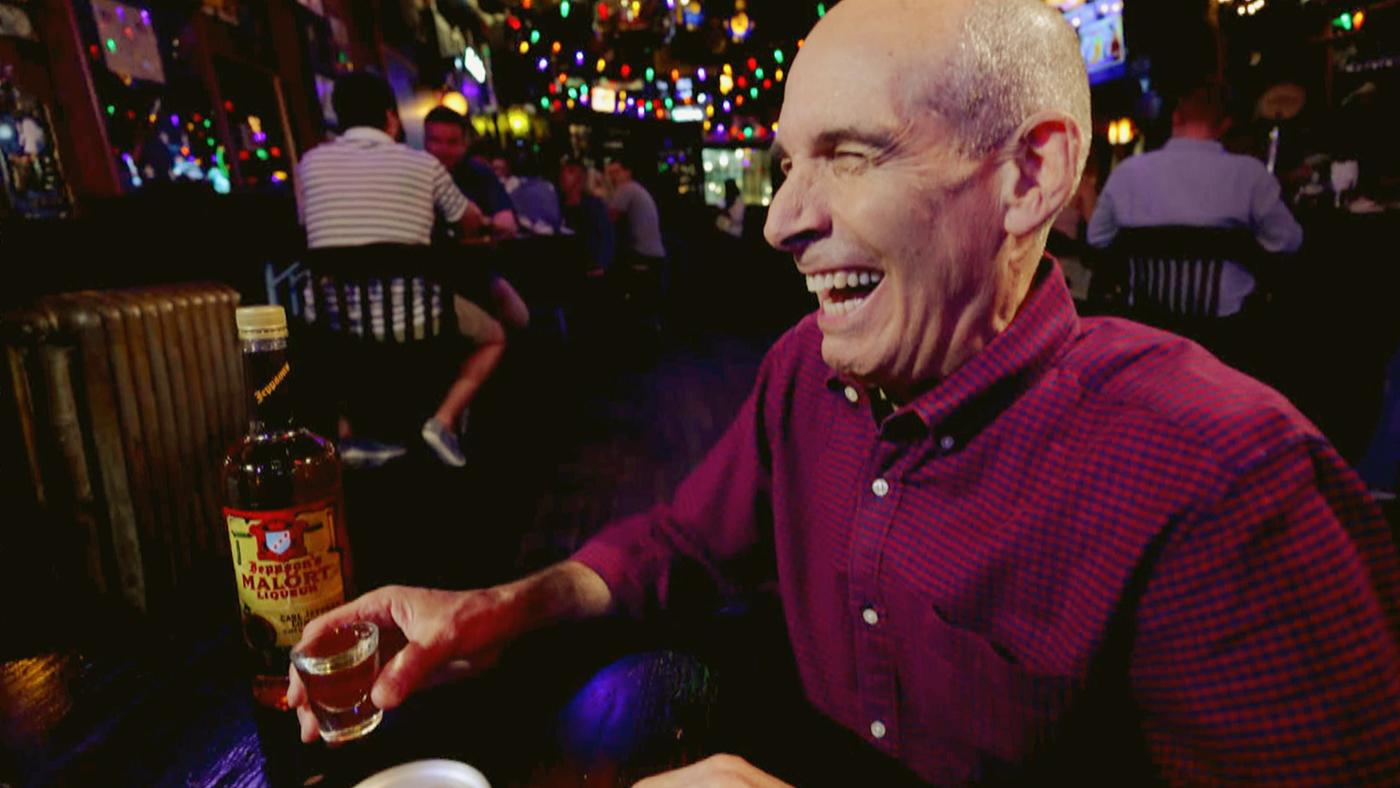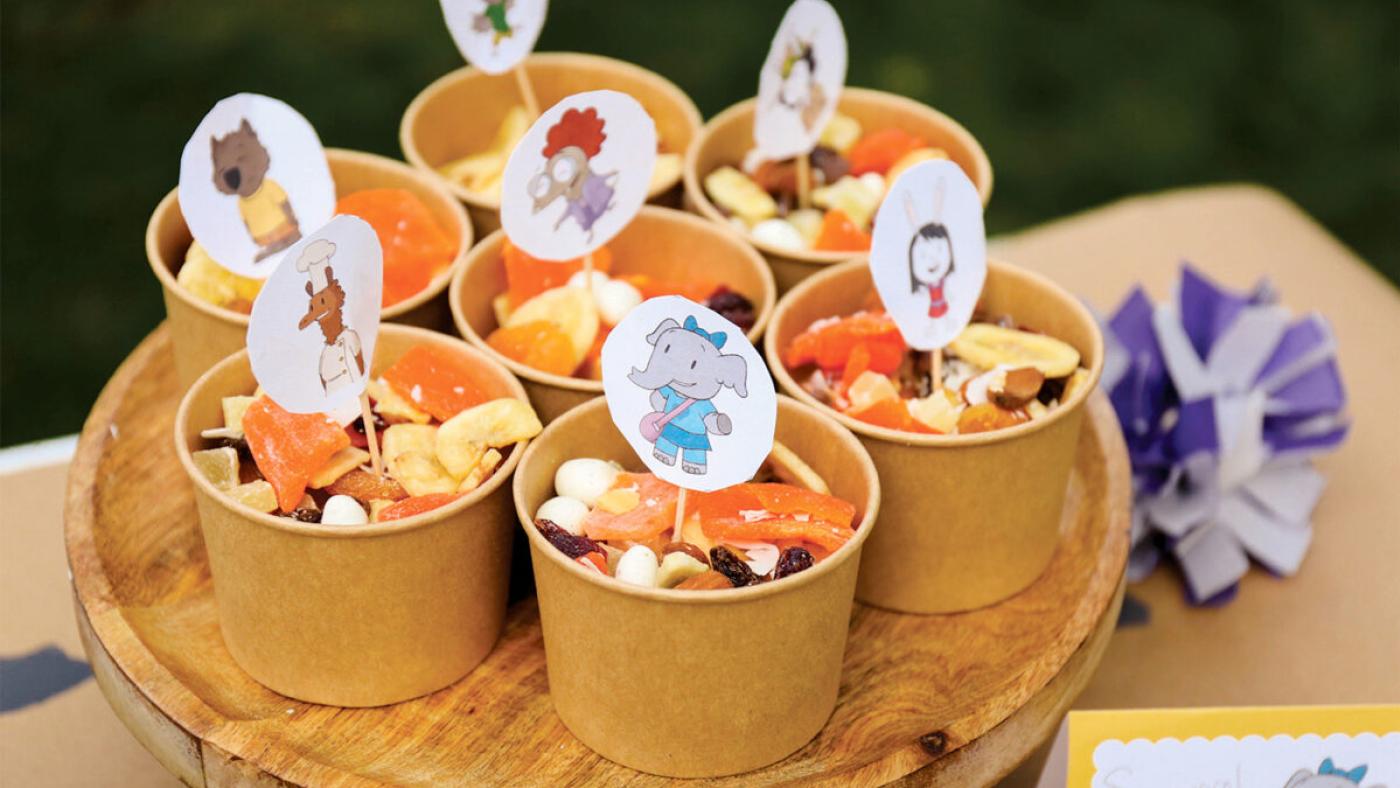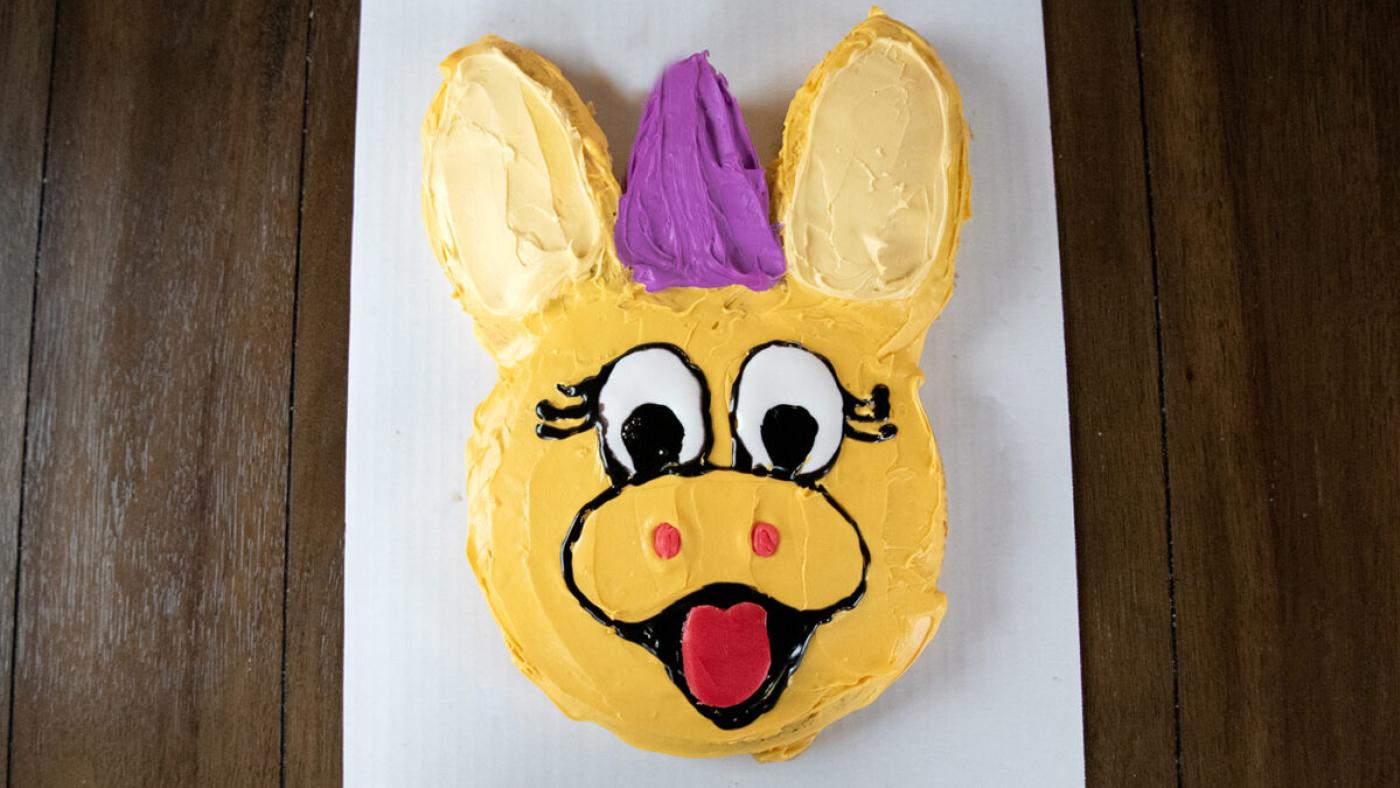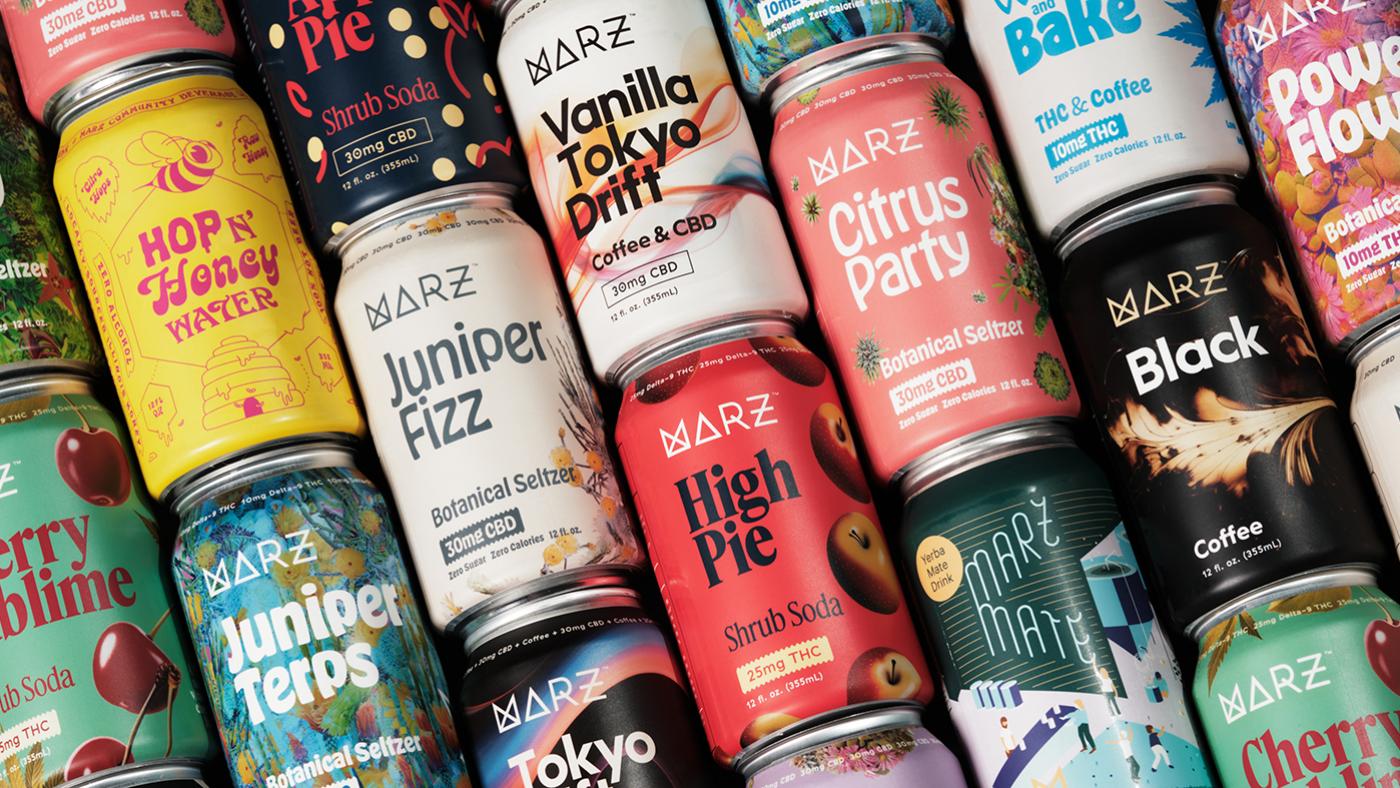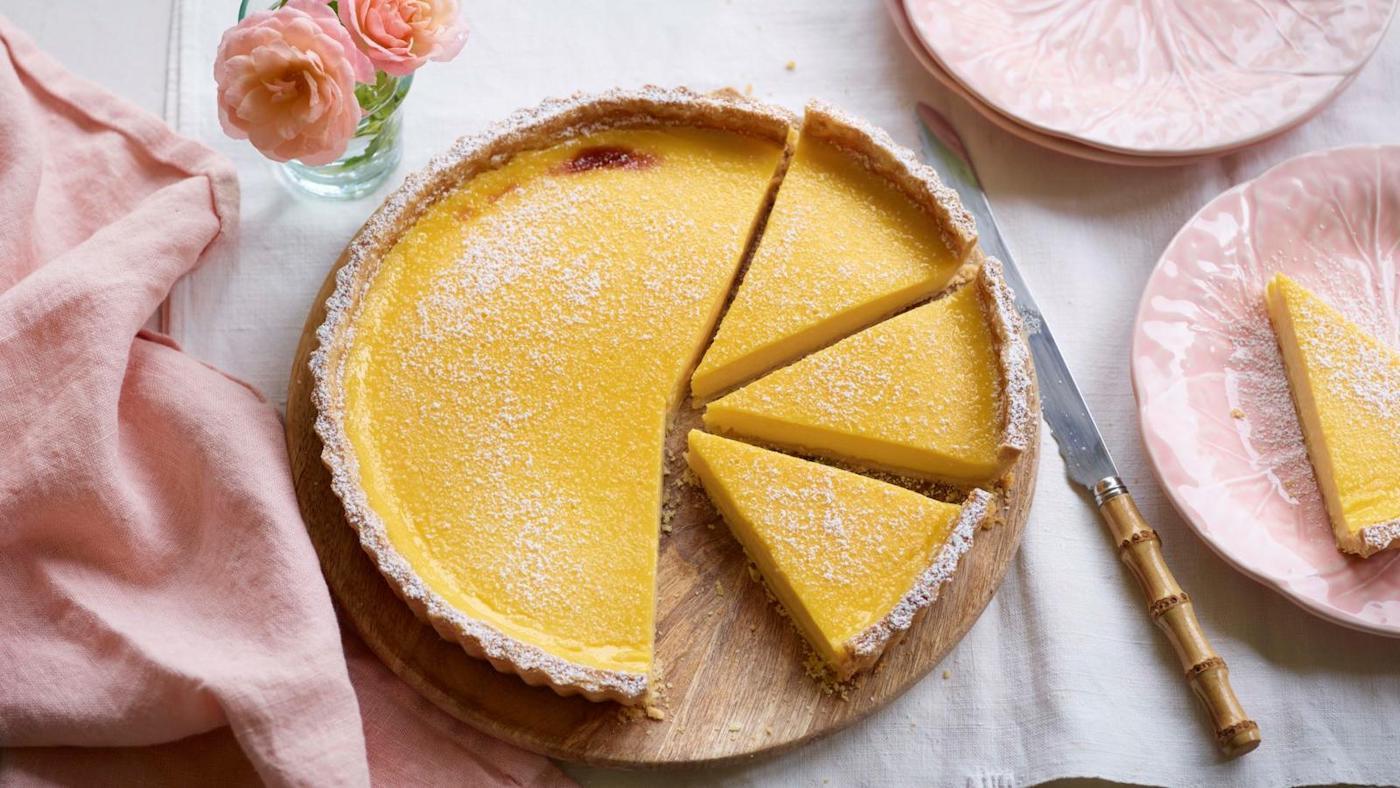Chicago is ‘On the Brink’ of Becoming a Sake Town. This Bottle Shop Wants to Take it To the Next Level
Lisa Futterman
November 21, 2023
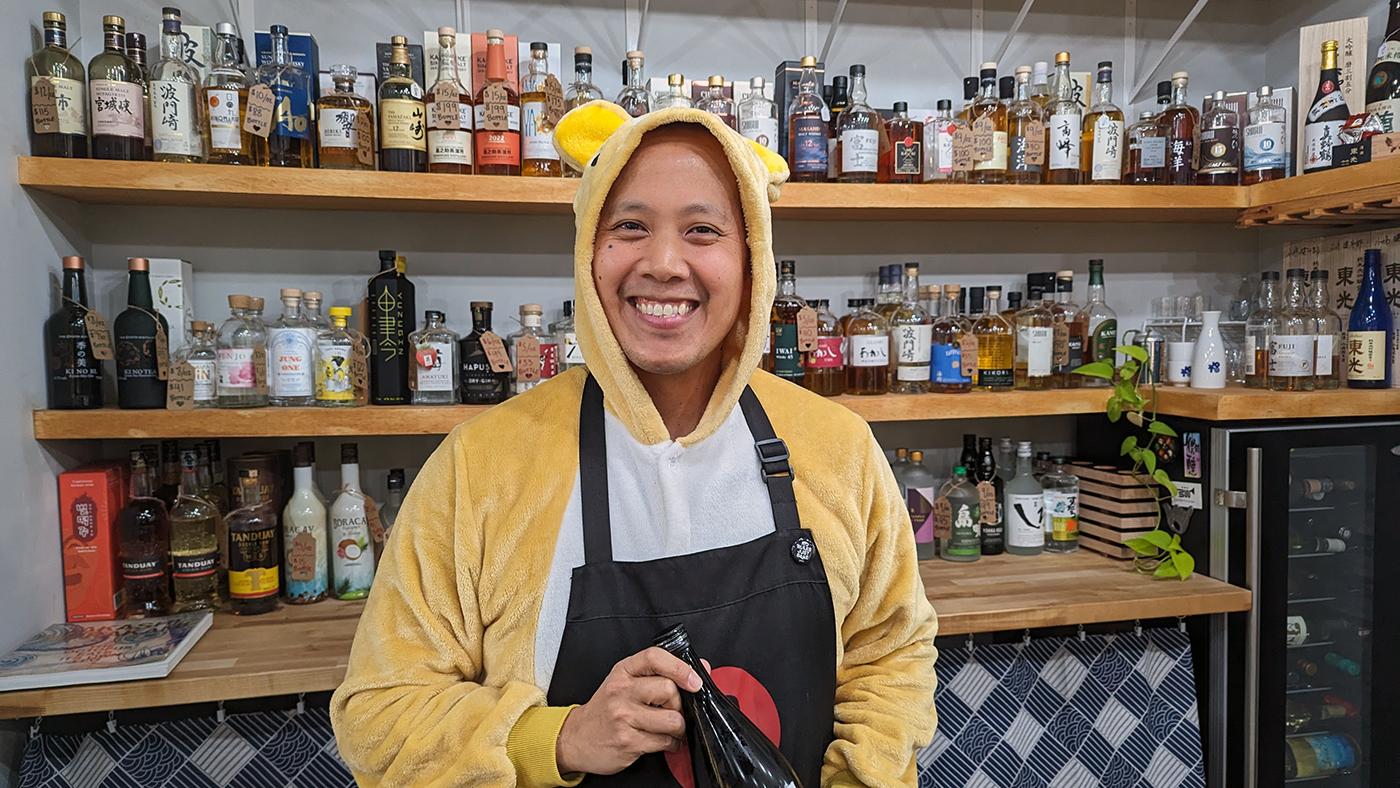
Get more recipes, food news, and stories by signing up for our Deep Dish newsletter.
From the sidewalk on a quiet stretch of the otherwise busy Belmont Avenue, Konbini & Kanpai looks like an understated, boutique-style bottle shop. But you wouldn't ever find the proprietors of those kinds of stores dressed in a cute, anime-inspired onesie, and that playfulness extends to the shop itself. Husband and wife Jun-Jun Vichaikul and Naomi Hattori opened Konbini & Kanpai in August, 2021 to bring their love of Japanese spirits – and their snack counterparts – to the Lakeview neighborhood.
“We wanted to build on a foundational concept of canned Japanese spirits,” says Vichaikul. “What we saw was that sake was a big draw for people in Chicago, which we never would have thought.”
The owners stock their cheerful store with an exceptional selection of whisky, sake, shochu, gin, beer, canned cocktails, and soft drinks – many in single servings, as is common in Japan. In a cooler, there’s an especially charming selection of cup sake: individual, whimsically decorated glass sake containers that make for unique collectible juice glasses when the original contents are long gone.
While many Americans might not know where to start when it comes to Japanese craft liquors, Hattori and Vichaikul love to offer personal recommendations based on a customer’s preferred beverages. Vichaikul provides direction on what type of sake or shochu might excite a white wine drinker, beer nerd, or gin enthusiast.
“We do everything by flavor profile,” he says. “We curate the selection that way, which makes it a little easier for the consumer to come in and get their feet wet – or their mouths wet – with sake.”
Hattori and Vichaikul also offer expertise on shochu, a clear spirit that’s distilled from ingredients such as rice, sweet potatoes, or roasted barley, offering vodka and gin drinkers a lower-proof alternative that packs lots of body and flavor.
While it is already popular in bars in Japan, “shochu’s been gaining steam here in the States,” says Vichaikul. That's thanks in part to places like the acclaimed West Loop bar Kumiko, where Julia Momose reverently spotlights high-quality sake and shochu, including in flights that allow an imbiber to taste a sake or shochu both separately and as part of a cocktail.
“Julia from Kumiko has really been doing a great job of putting shochu up front,” says Vichaikul. “Her shochu old fashioned – it's fantastic. A lot of people come by for shochu and other ingredients that she's using.”
Another Chicago establishment that might lead curious people to Konbini & Kanpai is Lettuce Entertain You's Sushi-San, which recently released a private label sake called Sake-San that's available at Konbini & Kanpai. Sake-San is produced by Daimon Shuzo, a sixth-generation Osaka sake brewery, in a partnership that reflects a longstanding connection between Chicago and Osaka, which just celebrated their fiftieth anniversary as sister cities. Jackson Park still has an Osaka Garden that honors the Japanese Pavilion that stood in the same location during the 1893 World's Columbian Exposition. The hand-drawn label on Sake-San showcases iconic pieces of architecture from both cities: the Willis Tower and Osaka Castle.
Sushi-San’s beverage director, Daniel Bennett, was charmed by the idea of jizake, the Japanese idea that sake can reflect its local area, and wanted to craft a sake that could represent Chicago and Japan. (Bennett was just nominated for Sommelier of the Year by the Jean Banchet Awards, perhaps further proof that sake is becoming more popular and respected in the U.S.)
The ginjo sake is complex and weighty on the tongue, with honeyed melon notes, and pairs well with the sushi and sashimi on Sushi-San’s menu.
“I love it with hamachi, because of the butteriness of both," says Bennett. Sake-san is meant "to provide a gateway. You haven’t had sake before this one? Start here.”
Like Bennett, Hattori and Vichaikul enjoy introducing people to sake and helping pair it and other Japanese spirits with food.
“People are gravitating towards sake for not just sushi," Vichaikul says. "I know a lot of people come in here and say, ‘Having sushi, I need sake.’ We tell them, ‘It's [also] great with pizza, it's great with burgers.’
“One thing that I always preach about sake: Not only is it extremely clean, it has more amino acids than wine or any other spirit in general. So, it's not trying to cut through any type of flavor profile,” Vichaikul continues. “What it’s really trying to do is cling on to something and really enlighten it… You have that ‘aha’ moment where you have that experience with a certain food, and a sake like this actually is a better pairing than beer or wine.”
Konbini & Kanpai offers its own opportunities for people to have those "aha" moments, hosting a varied menu of tastings and activities that often include food. It's much more than just a store. Rotating sake and shochu flights as well as monthly clubs promote independent discovery and education. Japanese visitors such as esteemed sake brewers, master whisky blenders and distillers, and soba noodle makers stop by for events. There is no shortage of ways to connect the community with Japanese culture and one another, like monthly origami “fold and sips,” informal bottle-share meet-ups, and pop-up events for small, Asian American-owned businesses.
The business has been well enough received that it is expanding: Vichaikul hinted at an upcoming second Konbini & Kanpai location, soon to open in Wrigleyville. Eric Hattori, Naomi’s brother, who owned Piko Street Kitchen, a Pan-Asian Street food truck, is currently building out the menu.
“I feel like Chicago is on the brink” of offering more traditional Japanese cuisine and beverage programs that feature sake and shochu, says Vichaikul. “I think Chicago's ready for places that are trying to bring not just sushi or omakase. I think Chicago's on that cusp of…saying sake is a great thing.”

